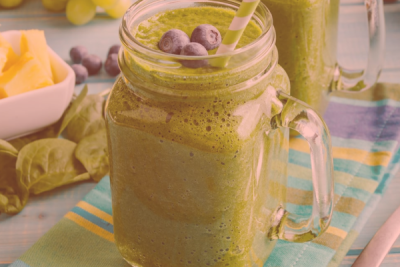Garlic is a popular ingredient in many dishes that are enjoyed around the world. It is known for its strong taste and aroma and is also believed to have several health benefits. Garlic is often used to prevent the common cold and heart disease. Folklore suggests that garlic ingestion can ward off insect bites.
Garlic can be consumed in various forms, including raw garlic, garlic bread, garlic tea, garlic soup, or garlic capsules. However, the healthiest way is to consume raw garlic.
Properties of garlic
Garlic is rich in allicin. When garlic cloves are chopped or crushed, an enzyme called alliinase is activated, which can convert alliin into allicin. Allicin is a natural plant broad-spectrum antibiotic with anti-bacterial, anti-inflammatory, antiviral, and antifungal effects.
Allicin can improve sleep, boost immune function, reduce cholesterol levels, lower blood pressure, prevent cardiovascular disease, improve blood circulation, improve digestion, and reduce inflammation in the gut. In addition, eating raw garlic has the effect of delaying the aging of the human body.
Helicobacter pylori
Helicobacter pylori (H. pylori) are bacteria that can cause an infection in the lining of your stomach. In some individuals, it can cause chronic gastritis, gastric, peptic, and duodenal ulcers, gastric lymphoma, and gastric cancer. H. pylori can give rise to gastrointestinal (GI) symptoms, such as:
- Burning pain in the abdomen
- bloating
- Loss of appetite
- nausea
- frequent burping
- unexplained weight loss
- stomach cancer
Experts say that over half of the world’s population have H. pylori in their stomach, but only a few develop diseases from it.
H. pylori infections typically require triple therapy with two antibiotics and a proton pump inhibitor. However, such treatments have limitations including antibiotic resistance and low patient tolerance. Moreover, antibiotics may cause nausea, diarrhea, and loss of appetite.
Effects of garlic on H. pylori
Garlic exhibits a broad antibiotic spectrum against both gram-positive and gram-negative bacteria, including common pathogenic bacteria responsible for diarrhea in humans and animals. It is effective even against antibiotic-resistant strains such as methicillin-resistant Staphylococcus aureus (MRSA) and can prevent toxin production by microorganisms.
Garlic extract is effective against Helicobacter pylori (H. pylori), a bacterium implicated in stomach cancer and ulcers. Clinical trials are needed to explore the potential use of garlic as a low-cost remedy for eradicating H. pylori. Garlic oil and garlic powder have shown similar results.
The prophylactic and therapeutic effects of garlic are attributed to specific organosulfur compounds, such as allicin, which are responsible for its odor and flavor. These compounds have antibacterial activity and contribute to garlic’s medicinal properties.
A study reported that the combination of garlic and omeprazole (proton pump inhibitor) showed a synergic effect against Helicobacter pylori, which was concentration-dependent. The main antimicrobial effect of garlic is due to the chemical reaction between allicin and thiol (thiol alkylation) groups of various bacterial enzymes. Garlic has oxidizing properties that prevent the action of reactive oxygen species (ROS) generated during infection and inflammation.
People who consumed vegetables containing allium (the active compound in garlic) had a lower risk of gastric cancer than people who hardly consumed any allium vegetables.
Key takeaways
Garlic is a versatile ingredient that can be consumed in many ways. incorporating garlic into your bedtime routine can be a great way to improve your overall health and well-being.
Raw garlic and garlic extracts are effective against Helicobacter pylori (H. pylori) and could be prescribed along with routine drugs for the treatment of gastric H. pylori infection.
Potential benefits of garlic on H. pylori include the following:
- Antibacterial properties: Garlic’s allicin compound has been shown to have antibacterial effects, which may help combat H. pylori.
- Antioxidant activity: Garlic is rich in antioxidants, which can help protect the stomach lining from oxidative damage caused by H. pylori.
- Anti-inflammatory effects: Garlic contains compounds that possess anti-inflammatory properties, potentially reducing inflammation caused by H. Pylori infection.
- Immune system support: Garlic has immune-boosting properties that may enhance the body’s ability to fight off H. Pylori infection.
However, the effectiveness of garlic in treating H. Pylori may vary from person to person. It is recommended to consult with a healthcare professional for personalized advice and to determine the appropriate duration of use.













